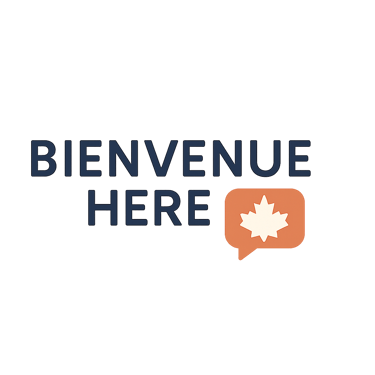How to Learn French in Montreal: A Practical Guide for Newcomers
Whether you’re an international student, a temporary worker, or a newly landed permanent resident, one thing becomes clear very quickly: learning French in Montreal isn’t just helpful — it’s essential. While you can survive with English in some parts of the city, speaking French unlocks everything from better job opportunities to deeper cultural connection. The good news? Montreal is full of free or low-cost ways to learn French, and this guide will walk you through the most effective ones.
Why French Matters in Montreal
Montreal is a bilingual city, but French is the official language of Quebec. That means:
Most jobs require at least basic French
Government services are primarily offered in French
Social interactions (shopping, healthcare, housing) often happen in French
Whether you’re staying for a semester or planning to settle long-term, learning French improves your quality of life and helps you feel more at home.
1. Take Advantage of Free French Classes
Francisation Québec (Government Program)
Offered by the Ministère de l’Immigration, de la Francisation et de l’Intégration (MIFI), this program provides:
Full-time, part-time, evening and online French classes
Classes designed for all levels
Financial aid for eligible participants
How to apply: Create a MIFI account at quebec.ca/francisation
Community Organizations Offering Free Classes
Many non-profits offer free or low-cost French classes:
PROMIS – Personalized courses and integration workshops
YMCA International Language School – Subsidized options
CÉDA, CACI, and ALPA – Local orgs with beginner to intermediate offerings
Pro tip: These often have shorter waitlists than government programs.
University Programs (for Students)
If you're studying at McGill, Concordia, UQAM, or Université de Montréal, check:
Free French workshops
Credit and non-credit French language courses
French conversation partners (language exchange programs)
2. Practice French in Everyday Life
Studying alone won’t cut it — real progress happens when you speak. Here’s where and how to do it:
Volunteer in French-Speaking Environments
Retirement homes / CHSLDs – Older residents love to chat and are patient
Food banks and shelters – Many Quebecois volunteers = lots of listening and speaking
Join a Language Exchange or Game Group
Meetup groups: Try "Franglish", "Tandem Montréal", or "Apprendre le français avec jeux"
Randolph Pub Ludique: A game café where you can play board games in French
Library programs: Check Bibliothèques de Montréal for free conversation circles
Attend French Cultural Events
Cinéma du Parc: French-language film nights
Festival du nouveau cinéma, FrancoFolies: Music and film events in French
The more immersive your social life becomes, the faster you’ll learn.
3. Use Tech and Media to Build Vocabulary
Apps are great for structure, and Quebec media helps you develop real-world listening skills.
Best Apps to Learn French
Duolingo – Gamified learning, great for beginners
Babbel – More grammar-focused
LingQ – Advanced learners can study with real articles
Mondly – Focuses on practical daily situations
Podcasts to Learn On the Go
Coffee Break French – Beginner-friendly
Français Authentique – Slower-paced, natural speech
Learn French by Podcast – Explains vocabulary and grammar in English
YouTube Channels
Français avec Pierre – Well-structured lessons
Comme une Française – French culture + language
InnerFrench – Natural, intermediate-level content
Quebec French TV & Films
Les Parent, District 31, Unité 9 (TV)
Bon Cop, Bad Cop, Incendies (Films)
4. Make It a Daily Habit
Consistency beats intensity. Try:
20 minutes/day on an app + 10 minutes listening to a podcast
Shadowing French TV shows: Repeat lines aloud
Labeling items in your home in French (Post-its on your fridge, door, desk)
Reading BD (bande dessinées) like Astérix, Tintin, or Les Nombrils
Create a rhythm that fits your lifestyle, and your brain will pick it up naturally.
5. Staying Motivated When Learning Feels Hard
Let’s be honest — there will be days where French feels like a mountain. Here’s how to keep going:
Celebrate the Small Wins
First time ordering food in French? 🎉 Celebrate it.
Understood a street sign or overheard convo? You’re improving.
Find a French-Speaking Friend or Roommate
Social immersion accelerates everything
Don’t worry about making mistakes — Quebecers are often encouraging
Use Incentives
Set small goals (e.g., "Complete 7 Duolingo lessons")
Reward yourself: café au lait, croissant, or movie night
Bonus: French for Specific Needs
Students:
Learn academic vocabulary for class discussions
Ask professors for help understanding instructions in French
Job Seekers:
Practice writing your CV in French
Roleplay job interviews in French with a friend
Parents:
Learn phrases for school communication: report cards, teacher emails
Many school boards offer free French classes to parents
Final Thoughts
Learning French in Montreal doesn’t have to be stressful, expensive, or isolating. From free government programs to friendly game nights, there are dozens of ways to improve every week — all it takes is a little initiative. Whether you're aiming for fluency or just trying to get by, remember: every bonjour, merci, and ça va brings you one step closer to feeling at home.
Keep an open mind, keep practicing, and soon enough , you’ll be the one helping the next newcomer find their way.
